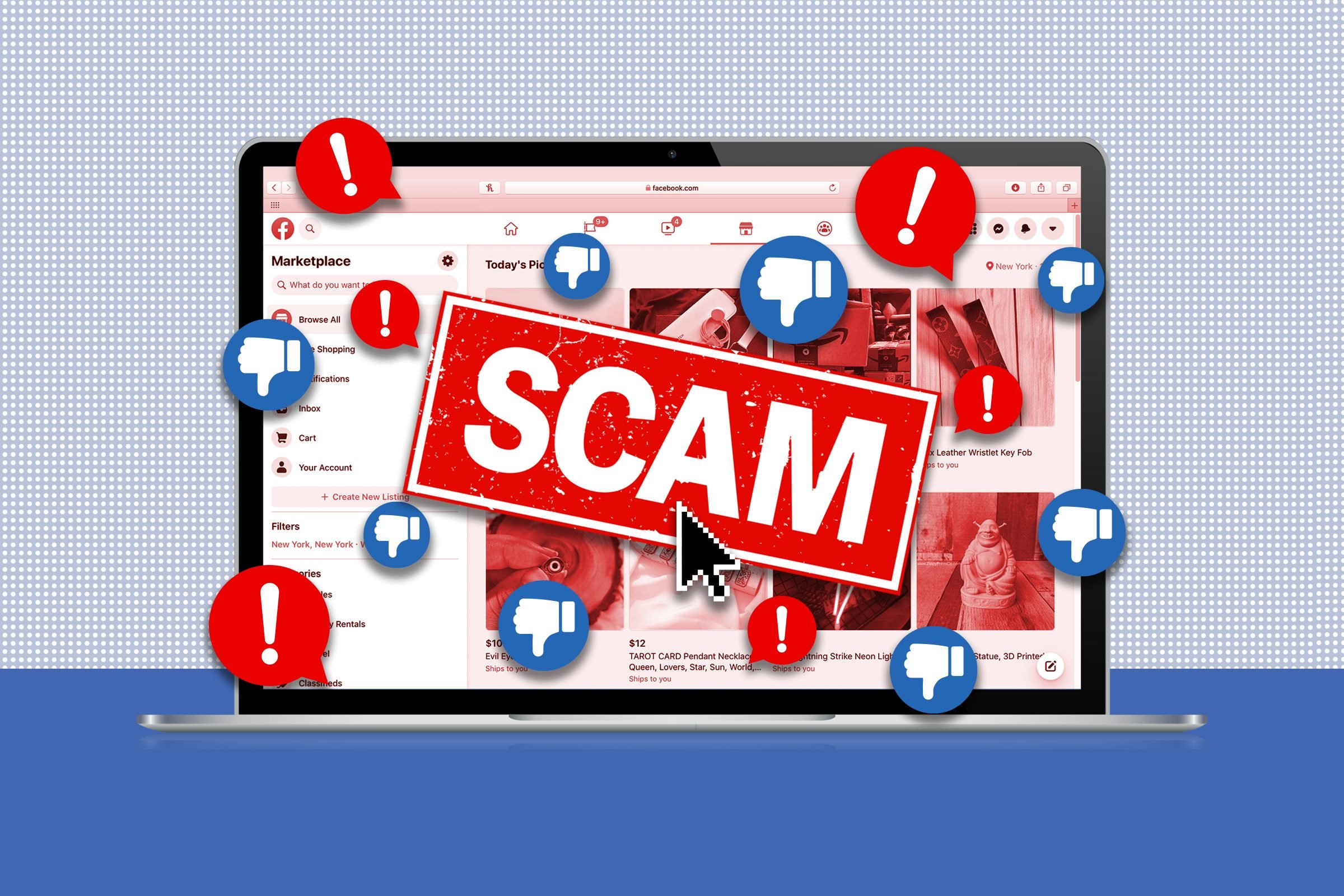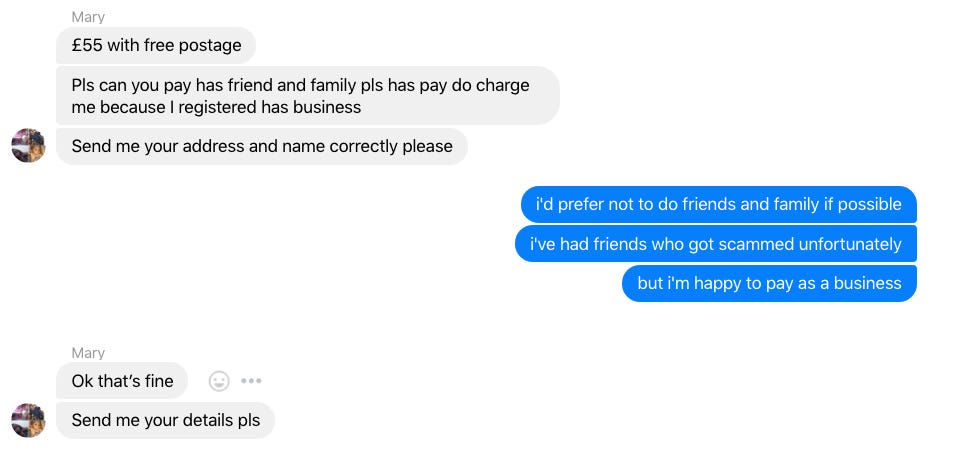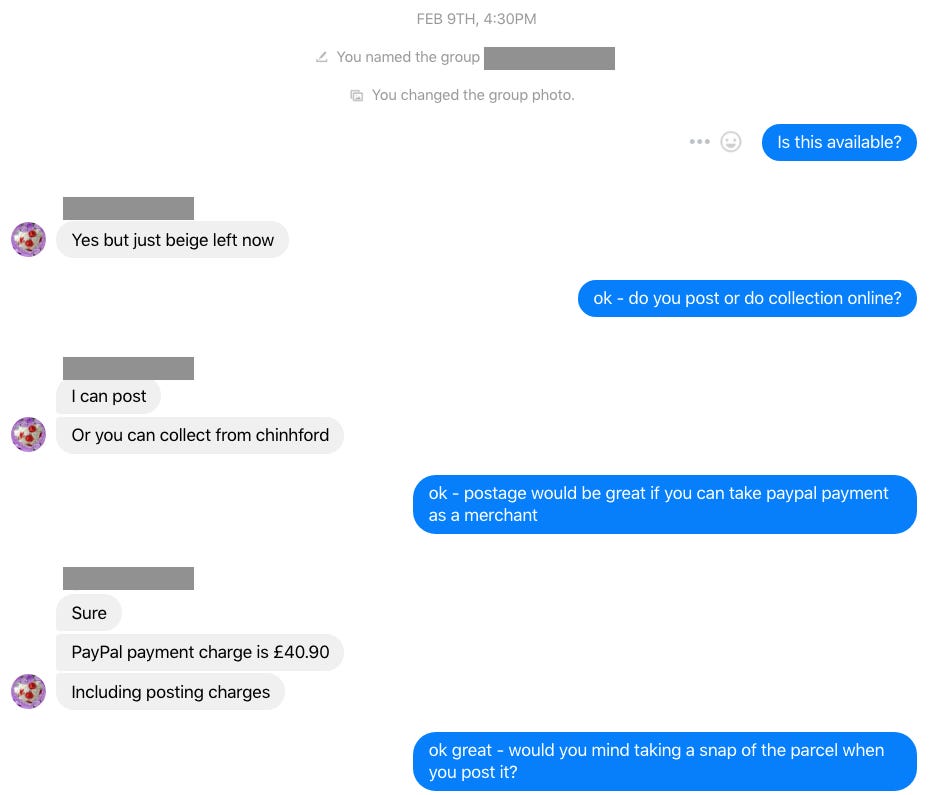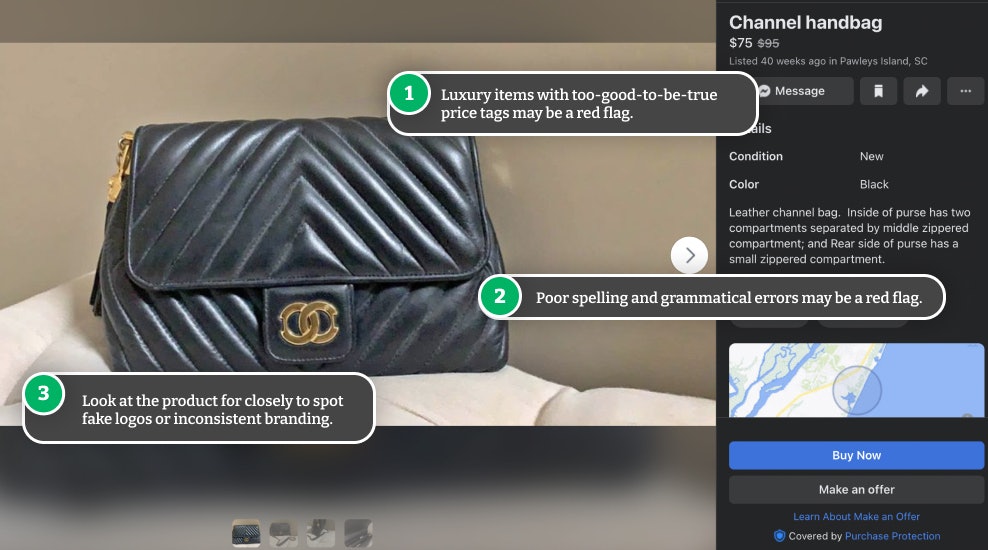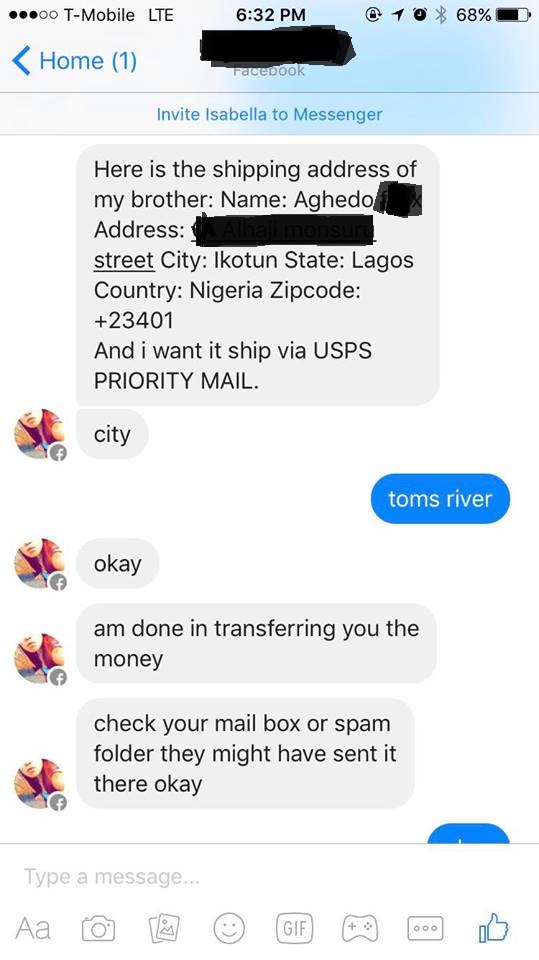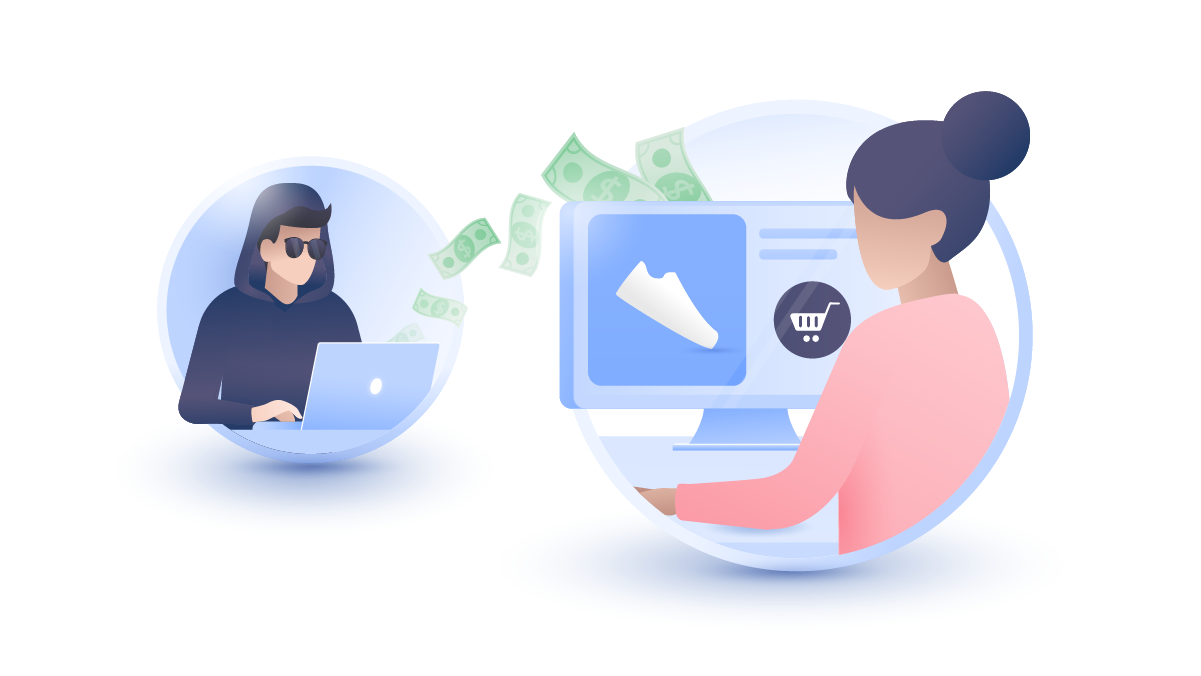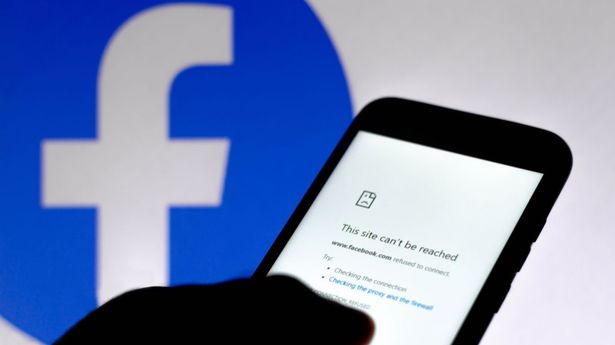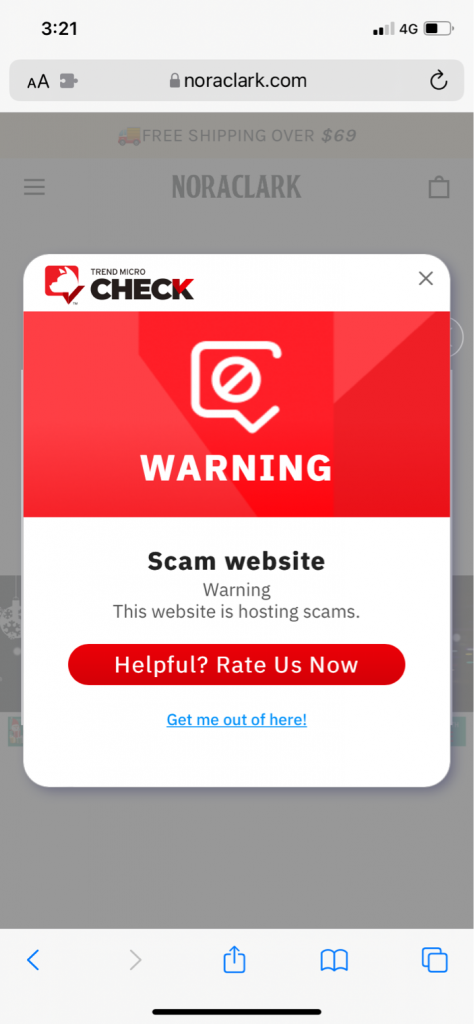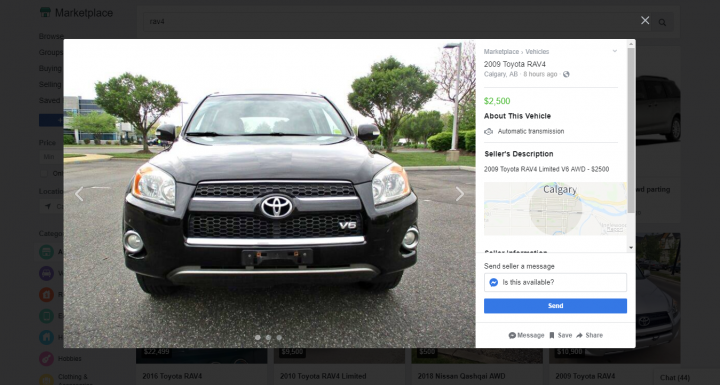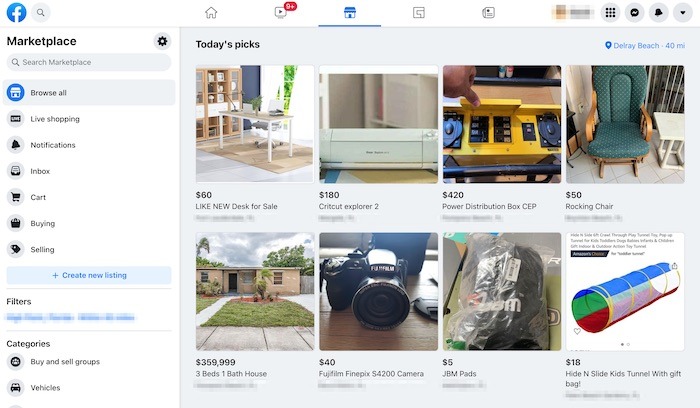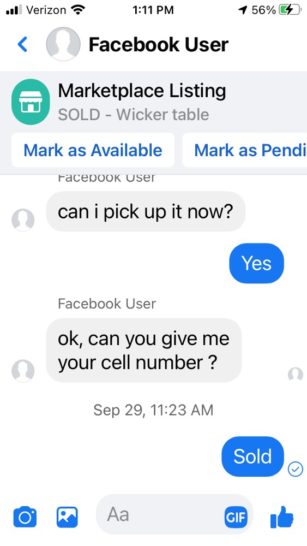Facebook is a site that is often considered a mixed bag when it comes to good or bad things but sometimes between the good things on Facebook and the bad things on Facebook, the bad things win!
It’s not a new thing for people to get scammed on social media sites but getting scammed using a feature made with small business owners in mind is not a good thing! Facebook marketplace is quickly becoming the home for scammers and we decided that it was time we uncovered the scams!
13 Scams That Plague the Facebook Marketplace
1. Outside the Wire Scam
Scams usually run best when there is no one monitoring the scammer and that is what this scam is all about. In this scam the scammer shows you a product on the Facebook Marketplace and once you like the product the scammers provide you with an alternate point of contact.
Once you contact the seller, He or She asks you to Venmo or Wire them the money so they can provide you with the item at an extra discount. The person then receives the money and disappears leaving you empty-handed.
The issue here is since your payment method was outside the Facebook marketplace your purchase isn’t protected by Facebook and since you spoke on an alternate platform with the seller there is no traceability of the whole event.
Make sure you stick to speaking to the seller on Facebook and that you only pay using the officially approved payment methods which are PayPal and Facebook Checkout.
2.“Oh! it’s on its way” scam
Facebook Marketplace is designed in a way to promote the local vendors in your area but oftentimes one may find themselves yearning for a good deal that may not be in your locality. These deals that seem too good to be true are usually fishy.
Facebook advises users to shop in their vicinity rather than shopping from vendors who are far away and if at all you find yourself purchasing from a seller who is from another location ensure that you pay using PayPal or Facebook Checkout to be covered under buyer protection.
The way this scam works is that a far-off seller will display an item at a very lucrative price. This item will genuinely seem like the steal of the century up until after you have paid for it. Once the payment is completed the shipment keeps getting delayed.
The Shipment is so delayed that you forget about the order and the seller has taken your money from you. Another version of this scam is when you order a certain item but get an incorrect item. In both cases remember Facebook’s advisory and ensure that you always ask for a tracking number.
3.“This isn’t Gucci” Scam
If you go to the Facebook marketplace right now you are going to find hundreds of deals that would make you think that Amazon is stealing your money! I am talking about deals like getting a new XBOX at just $100 and more.
These deals sound too good to be true right? That’s because such deals are usually too good to be true. Most of these ultra-discounted items aren’t what they have been advertised as. Such products are mostly counterfeits or second-hand items.
How this scam works is a no brainer, the seller purchases the counterfeit items at a cheap price and quotes the buyer a price that is more than 100% of the original price of the goods. The buyer quickly grabs the deals as it seems like there can’t be a better deal than this.
Once the buyer realizes that they have been duped they start wondering what to do. The interesting part of this scam is when the buyer says, “Hey even if it’s a copy it’s a good one and hey I paid a lot less compared to the original one!” with this thought the buyer does not complain and the cycle of this scam continues.
To avoid being scammed by counterfeit goods one must ensure to adhere to Facebook prescribed protocols and try and check the product out before purchasing!
4. Transferred Too much Scam
This scam is a role reversal where the victim is the seller and not the buyer. A lot of times we transfer more than the quoted price, Wait! We don’t! Exactly, the scam runs on the idea that a buyer may by mistake transfer more than the quoted price.
This scam is unique as it involves providing false proof of payments. Here the scammer contacts the seller for a certain product, after the inquiry the scammer asks for an easier payment method like Venmo or wire transfer.
Once the scammer is sure that he or she has you hooked they show you an image that shows that they have transferred a bit too much and they would like a partial refund. The seller now cannot cross-check as the payment was made on a 3rd party app.
The seller gives a partial refund without realizing that he just gave free money to a scammer. This scam relies on the seller being too lazy to cross-check and most of the time these scams are of lower cost to ensure the seller doesn’t mind giving the partial refund without cross-checking.
The general guideline to save yourself from these scams is to ensure that you do not give any money back without cross-checking your accounts first.
5. Pay Me an Advance on That Scam
Asking for an advance may be the oldest trick in the book. This is a scam that runs generally all across the world but is quite prevalent on the Facebook Marketplace. The scam is based around the thought that to establish mutual trust one must give a certain amount as advance.
The scam is as simple as it gets, you will see a good product at a great price, once you are interested the seller will establish contact with you once the contact is established the seller will request you for an advance to establish faith.
He will request you to make this transfer off the Facebook payment platforms for obvious reasons and once you have paid the seller the advance he or she will simply disappear with the money. The easiest way to avoid being scammed this is way is to ask for an in-person exchange of items, do take someone with you for added safety.
6. Fake Account Scenario
This is probably the easiest scam to explain on this list and rightfully so as this scam has been running for a long time. In this scam, a fake seller profile is created by the scammer and this profile adds fake products. Once a buyer transfers the money for purchasing the product the scammer deletes the fake account and any identity related to it.
The best way to avoid being scammed this way you can very easily visit the seller’s profile and see if it’s old enough to be trustworthy if they have pictures that are real and that no essential information is left out of the Facebook profile.
7. Good Rental Scam
Renting a house is a big deal for every human in the world no matter which country. Therefore, the house rental scam is one of the most prevalent scams on the Facebook marketplace as most people fall for the allure of getting a beautiful place to rent at a very low cost.
The scam targets people looking for steal deals when it comes to property rentals. The scammer lists a property at an extremely alluring rate the property and this property will generally look marvellous in pictures but in reality, once everything is done and you have paid a token amount, the scam is revealed as the scammer had posted fake pictures of the property.
This scam has variations of it wherein the scammer charges illegal fees or tries to rent out properties not owned by them.
The best way to avoid being scammed in this way is to always check the property in real life before paying any money to the person listing the rental.
8. It Does Not Work Scam
This scam is prevalent on tones of eCommerce sites and marketplaces. This scam as the empirical data suggests starts with the allure of a product that is displayed at a price that seems too good to be true.
The product is kept at a lower price to attract gullible buyers once the buyer pays for the product, he or she receives the product and the shipping details but when the buyer tries to use the product, it just doesn’t work.
This scam is a way for the scammers to get rid of their broken equipment by trapping the gullible buyers and having them pay for a product that never really works and by the time the buyer is aware of this the seller has already disappeared.
To avoid being scammed this way ensure to stay away from deals that seem too good to be true.
9. Get Some Free Crypto Scam
Anything that you get for free is a good thing is a concept that lands a lot of people in dangerous situations. One such situation may occur if you frequent the free giveaway pages on the Facebook marketplace.
Often scammers advertise free cryptocurrency giveaways for users and with the recent crypto boom, most of the users fall prey to the giveaway trap. Most of the time these giveaways have a link that redirects you to a giveaway page.
Clicking on the link may sometimes be harmless but in many cases, the link may contain malware that may create issues for you and may cause you astounding losses in the future. Another issue is that if the giveaway link is not malicious it will still ask you to fill out a form that will ask for your details. These details will then be sold to marketing companies to harass you.
The simplest way to save yourself from this scam is to avoid visiting giveaway pages and remembering that there are no free lunches in life.
10. Show Me the Deposit Money Scam
The automobile market is booming all across the world and the Facebook marketplace is no stranger to having automobile listing on its marketplace but these listings may sometimes be a cause for concern for some people.
This scam preys on the idea of exchanging trust and impatience of people. The scammer lists an automobile for sale at an amazing price. Once the buyer is interested the scammer tells the buyer that he has received a lot of offers and requires the buyer to pay a small deposit to hold the car.
Once the buyer transfers the deposit amount the scammer gives the buyer a fake address and never actually shows up rendering the buyer confused and disheartened. The best way to avoid falling for this is to not pay any money upfront without checking out the vehicle.
11. Oh, I Quoted the Wrong Price Scam
By Now one must have understood that most of these scams are based on lucrative pricing and this scam is no different. The scammer in this scam attracts buyers with a cheap price for a very costly product.
Once the buyer messages the scammer, the scammer then says that he made a mistake and the price is much higher. In this scenario, most of the buyers listen to the scammer due to the goodness of their hearts.
In reality, the price of the item is as listed but the scammer plays with the emotions of the buyers and makes them pay more for a good that is supposed to be priced much cheaper.
12. The Illegal Items Scam
It is common knowledge that an item that is stolen is usually being tracked by the police and other authorities. Such stolen items cannot be sold over the counter at a pawn shop and the thieves need to find other ways of fencing the items.
In this scam the thieves list the stolen items with stock photos at a discount on the Facebook marketplace, once these items catch the eyes of a genuine buyer the thieves then sell the buyer the item like any other seller.
Soon after the deal, the seller account is deactivated but now the onus of handling the stolen goods is on the buyer and can land the buyer into legal troubles. These issues can be avoided by verifying the authenticity of the goods and asking for a receipt for the same.
13. The Data Theft Scam
Some marketplace listings are for services that are offered at rates that are way too cheaper than what these services would cost in real life. These services are alluring and popular services like web designing and digital designing.
The scammer posts the listing at dirt cheap prices for the services. These prices attract small business owners or creators who are looking to save a pretty penny. The scammer then sends a small form to fill.
This is a simple form without any ads or malicious content. This form asks for your data and your preferences that may mildly be related to the services being offered. Once you confirm that the form is filled the scammer then asks for an advance to start the job.
Once the buyer sends the advance the scammer disappears like every other scammer on this list and the buyer is left at risk. The biggest problem with this scam is not the loss of money but rather the information that the buyer gave.
The scammer then uses the information entered by the buyers to create a database that then can be sold to a marketing company. This event would result in you getting spam calls from dozens of credit card companies and scammers looking to sell you something.
Scamming is not a new phenomenon in the world and has been going on for decades-long at a stretch. The only way to reduce scamming is by becoming more and more aware of what is going on and ensuring that you never perform any action preemptively without considering the situation first.
One must also remember that Facebook only provides buyer protection for transactions done on its platform using PayPal or Facebook checkout and no other modes of payment are covered under Facebook’s buyer protection policy
Make sure you are aware of what is happening around you by visiting us often!

